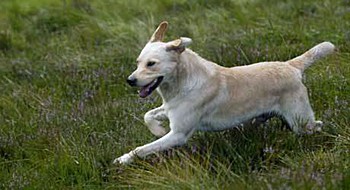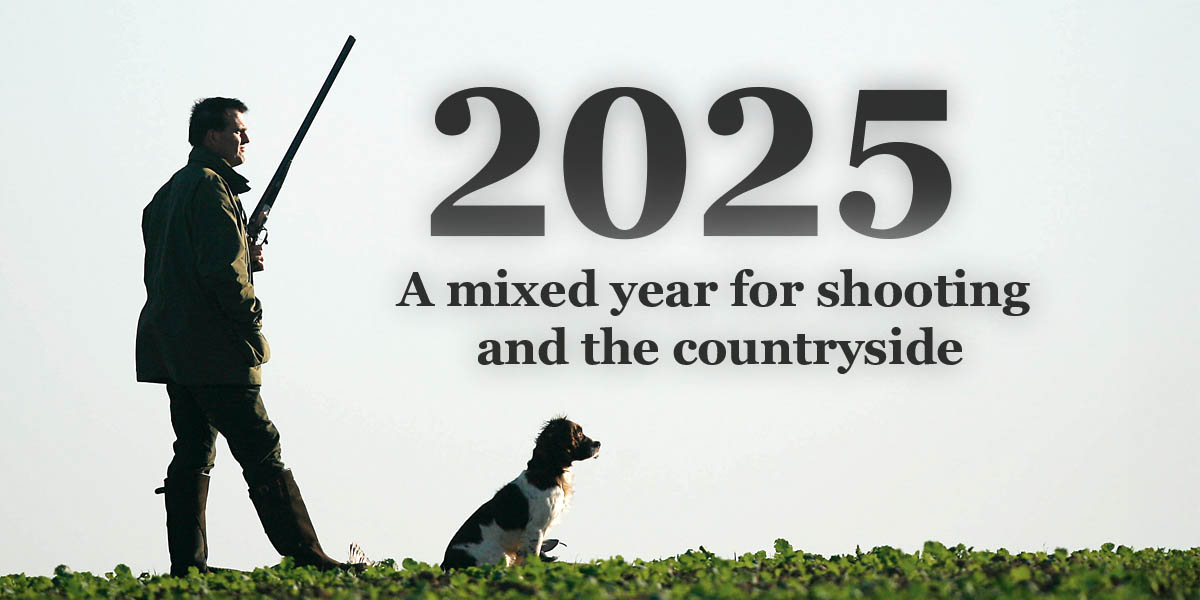Win CENS ProFlex DX5 earplugs worth £1,149 – enter here
What’s in your dog’s dinner?
<strong>The importance of reading labels on low-quality dried dog foods that often contain little nutrition</strong>

Dogs are extraordinary animals, able to survive on the most meagre of diets. I?ve often been surprised at how healthy some of the pye-dogs I?ve seen in places such as India and Africa have appeared, despite the fact that all their food comes from scavenging. Parasitical infestations would seem to be the greatest threat to their health, rather than the quality of the food they eat. One thing is certain: they consume a greatly varied diet, and you never, ever, see an individual that is overweight.
That?s in sharp contrast to the UK, where excess weight has become by far the most common medical condition in pet dogs, leading to numerous health problems. It?s much less of a problem in working gundogs, as most of us who work them are sensible enough to keep our animals fit. Nonetheless, I have seen a good few chubby Labradors waddle out of the Gun bus, and even chunky spaniels in the beating line. Our dogs don?t live by scavenging ? they eat whatever we give them, so it?s up to us to feed them the right amount, and not allow them to eat too much.
Quite what to feed them is another matter. The pet-food market is a multi-million-pound industry, dominated by huge multi-national companies such as Procter & Gamble, Colgate and Mars. There are many smaller players in the market, too, all competing for a slice of a lucrative business. My local country store sells 15kg bags of so-called working dog food for £7.50 a bag ? a price so low that you can be pretty sure its quality is equally low. However, I?ve no doubt that many dogs survive happily on it. Even buying the most expensive food has its risks: in America, Procter & Gamble has recently recalled bags of Eukanuba and Iams because of concerns about possible salmonella contamination.
If you feed your dog or dogs on dried food, it?s worth taking a close look at the label to see what?s in it. The first two ingredients are usually specifically named, and are normally meat of some sort and what is loosely termed a cereal. Ensure that the meat is named, be it fish, lamb, chicken or beef, and avoid any products that simply state meat and meat derivatives. Be wary, too, when the label says, for example, ?with beef?, as there isn?t likely to be much beef in the bag.
Not all dogs find chicken or beef to their liking, and some get on better with one rather than the other. Experiment and find which meat suits your dog best. Some thrive on fish-based foods, while most find chicken, lamb and turkey easier to digest than beef.
Cereal is also a general term that can describe a great variety of grains. Cheap food invariably uses inexpensive bulk fillers, such as maize and wheat. These are hard for a dog to digest, while many dogs are intolerant of wheat. Quality products will usually make it clear that they are wheat- or maize-free. Rice is a highly digestible source of carbohydrate that is easy on the dog?s stomach. One of the foods I use includes sugar beet. Once the sugar has been removed this is apparently a good source of highly digestible fibre.
The word ?digestible? is worth considering, for it means the degree to which the dog?s body can make use of the food it consumes. The less digestible the food, the more comes out the other end, and this is a good way of assessing the quality of the food you are providing.
It?s worth noting that the protein percentage can be misleading and, contrary to popular belief, too much protein doesn?t necessarily lead to behavioural problems; while too little protein can cause its own difficulties.
Most of us are aware of the problem of too much sugar in our own diets, but fail to consider that this might also be the case for our dogs. You might be surprised to learn that some of the most popular, top-selling brands of dog food contain high levels of sugar. The best advice is to avoid any food that has sugar listed as one of the ingredients.
Dried food has to contain preservatives, otherwise it won?t last. The best-quality foods contain natural preservatives. The artificial preservatives known as E320, E321 and E324 are all suspect, as they have been shown to cause cancer in both dogs and humans. If in doubt, do an Internet search ? it?s likely to spur you to start checking the labels of the food you eat, as well as the food you give your dog.
Whether you should feed your dog with dry or moist food is up to you. See what your dog prefers, although you will probably find that the dog isn?t too fussy. There?s certainly no good reason to feed your dog exactly the same food every day of the year ? I?m sure that dogs appreciate variety as much as we do. Nor is there any good reason for feeding your dog at exactly the same time every day, although I suspect that most of us do. As long as they get fed, dogs don?t really mind.
Related Articles
Get the latest news delivered direct to your door
Subscribe to Shooting Times & Country
Discover the ultimate companion for field sports enthusiasts with Shooting Times & Country Magazine, the UK’s leading weekly publication that has been at the forefront of shooting culture since 1882. Subscribers gain access to expert tips, comprehensive gear reviews, seasonal advice and a vibrant community of like-minded shooters.
Save on shop price when you subscribe with weekly issues featuring in-depth articles on gundog training, exclusive member offers and access to the digital back issue library. A Shooting Times & Country subscription is more than a magazine, don’t just read about the countryside; immerse yourself in its most authoritative and engaging publication.







